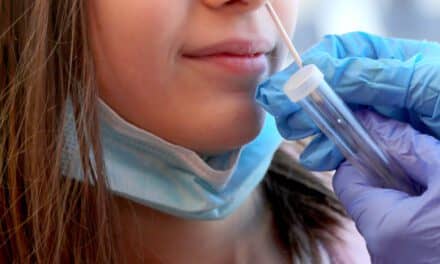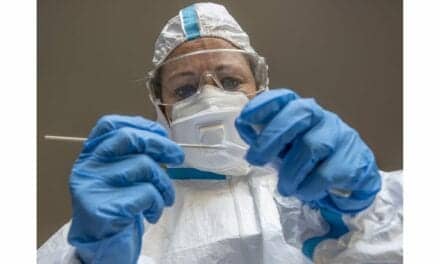Oxford Immunotec Global, Oxford, UK and Marlborough, Mass, has released the T-Spot.Covid test, a CE-marked ELISpot-based test intended for qualitative detection of a cell-mediated (T cell) immune response to SARS-CoV-2 in human whole blood. The company has filed an emergency use authorization request to the FDA for the test.
Serology does not give the full picture of the adaptive immune response to SARS-CoV-2 infection. Antibodies are not always produced in response to SARS-CoV-2 infection, or their production may be delayed.1,2 Antibodies can also wane quickly after infection, and reports show T cells may be more long-lived than the antibody response.3,4 In the absence of an antibody response, the T cell response may be protective from SARS-CoV-2 infection.5
In a clinical study using samples collected in the United States, the T-Spot.Covid test was proven to detect a SARS-CoV-2 cell-mediated (T cell) immune response in PCR-positive individuals, even with negative serology test results. The T-Spot.Covid test therefore complements results obtained by antibody serology to give a more comprehensive view of an individual’s adaptive immune response to SARS-CoV-2 infection. The test could also be used, for example, alongside serology tests to support clinical assessment of individuals who present with suspected covid-19 but are PCR negative.
In the study, the T-Spot.Covid test had a positive agreement with PCR-results of 96.6% (84/87) in SARS-CoV-2 infected individuals less than 60 days after first PCR positive result. At greater than 60 days (with the furthest time point after first positive PCR test result being less than 240 days) positive agreement remained high at 83.3% (40/48). The T-Spot.Covid test detected substantially more people with previous positive PCR results than serology in the cohort, whose positivity rate was lower and declined faster over time.
In an endemic cohort of US individuals selected to be at a relative lower risk of SARS-CoV-2 infection (based on the absence of self-reported symptoms, negative serology results, and no prior history of a positive PCR test result for SARS-CoV-2) the T-Spot.Covid test had a negative agreement of 98.0% (96/98). We cannot exclude the possibility that a proportion of this group had, or still have, an asymptomatic infection, seronegative at the time of testing, but in whom the T-Spot.Covid test was able to detect a T cell response.
“T cells and antibodies are two arms of the adaptive immune response,” says Phill Keefe, senior vice president of product design, development and delivery at Oxford Immunotec. “The detection and measurement of each can provide different insights about disease activity and an individual’s personal immunity.”
For more information, visit Oxford Immunotec.
1. Tan W, Lu Y, Zhang J, et al. Viral kinetics and antibody responses in patients with covid-19. medRxiv. Epub. March 26, 2020. doi: 10.1101/2020.03.24.20042382.
2. Altmann DM, Boyton RJ. SARS-CoV-2 T cell immunity: Specificity, function, durability, and role in protection. Sci Immunol. 2020;5:eabd6160. doi: 10.1126/sciimmunol.abd6160.
3. Ibarrondo FJ, Fulcher JA, Goodman-Meza D, et al. Rapid decay of anti-SARS-CoV-2 antibodies in persons with mild covid-19. N Engl J Med. 2020;383:1085-1087. doi: 10.1056/NEJMc2025179.
4. Zuo J, Dowell A, Pearce H, et al. Robust SARS-CoV-2-specific T-cell immunity is maintained at 6 months following primary infection. bioRxiv. Epub. November 2, 2020. doi: 10.1101/2020.11.01.362319.
5. Wyllie D, Mulchandani R, Jones HE, et al. SARS-CoV-2 Reactive T cell numbers are associated with protection from covid-19: A prospective cohort study. medRxiv. Epub. November 4, 2020. doi: 10.11012020.11.02.20222778.





